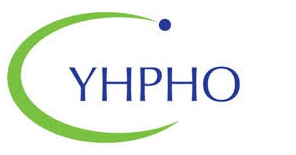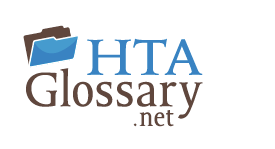Learning
 The What Is…? series aims to demystify some of the terminology, techniques and practices used to assess and act upon clinical and economic evidence in healthcare.
The What Is…? series aims to demystify some of the terminology, techniques and practices used to assess and act upon clinical and economic evidence in healthcare.
Evidence-based medicine
- What is evidence-based medicine?
- What is meta-analysis?
- What is critical appraisal?
- What is a systematic review?
Statistics
- What are confidence intervals and p-values?
- What are hazard ratios?
- What is Bayesian statistics?
- What is a Cox model?
- What is sensitivity analysis?
- What is indirect comparison?
- What is an NNT?
NHS and HTA?s
- What are the HTA processes in the UK?
- What is health technology assessment?
- What is commissioning in the context of NHS reforms?
- What is payment by results?
- Implementing NICE guidance
Health Economics
- What is health economics?
- What is cost-effectiveness?
- What is cost-utility analysis?
- What is cost-minimisation analysis?
- What is a QALY?
- What are health utilities?
- What is quality of life?
 The Economics Network provides teaching materials?for health economics. List of topics covered include:
The Economics Network provides teaching materials?for health economics. List of topics covered include:
- Introduction to health economics
- Economic evaluation
- Modelling
- Health policy
- Health systems
- Demand for health and healthcare
- Market failure
- Rationing
- Equity
- Global health and trade
- Behavioural economics
- Pharmacoeconomics
- Capabilities
- Health econometrics
 The Health Knowledge online learning resource is for anyone working in health, social care and well-being wherever they work or study. The resource allows you to access a broad range of learning materials for personal use or for teaching purposes in order to help everyone expand their public health knowledge.
The Health Knowledge online learning resource is for anyone working in health, social care and well-being wherever they work or study. The resource allows you to access a broad range of learning materials for personal use or for teaching purposes in order to help everyone expand their public health knowledge.
Public Health Textbook
- Research methods appropriate to public health practice, including epidemiology, statistical methods and other methods of enquiry including qualitative research methods
- Disease causation and the diagnostic process in relation to public health; prevention and health promotion
- Health Information
- Medical Sociology, Social Policy, and Health Economics
- Organisation and Management of Health Care and Health Care Programmes from a Public Health Perspective
E-Learning
Video Courses
- Finding and Appraising the Evidence
- Learning from Stakeholders
- Obesity Care Pathway Support Package
- Programme Budgeting & Marginal Analysis
- Screening
- Sustainable Healthcare
Health Economics Index: David Parkin
The Bandolier learning zone is for anyone undertaking self directed learning about evidence-based methods.
- Bias guide
- Outputs and utility
- Quality and validity
- Size
- Primer on calculating numbers needed to treat
- Good clinical guideline
- Implementing numbers-needed-to-treat
- Integrated care pathway
- On care pathways
- Programme budgeting and marginal analysis
- Implementing PBMA
- Implementing QALYs
- Clinical governance
- NICE
The?US National Library of Medicine and National Information Center on Health Services Research and Health Care Technology sites host a number of short learning activities. Including:
- Health Economics Information Resources: A Self-Study Course
- Finding and Using Health Statistics
- HTA 101: Introduction to Health Technology Assessment
- HTA: 101 and Comparative Effectiveness Research: a 2-Part Webinar Series
- Health Indicators: a 4-Part Webinar Series
- Introduction to Health Services Research : A Self-Study Course
 Yorkshire and Humber Health Intelligence produce information, data and intelligence on people’s health and health care for practitioners, policy makers and the wider community.
Yorkshire and Humber Health Intelligence produce information, data and intelligence on people’s health and health care for practitioners, policy makers and the wider community.
Health Economics
 The purpose of the HTA Glossary is to give the Health Technology Assessment community both producers and users of health technology assessment information a common vocabulary for work in this field. The HTA glossary is an official collaboration between International Network of Agencies for Health Technology Assessment, Health Technology Assessment international and other partner organizations.
The purpose of the HTA Glossary is to give the Health Technology Assessment community both producers and users of health technology assessment information a common vocabulary for work in this field. The HTA glossary is an official collaboration between International Network of Agencies for Health Technology Assessment, Health Technology Assessment international and other partner organizations.
 ISPOR serves the public interest by promoting the science of pharmacoeconomics and health care outcomes assessment by providing services to advance pharmacoeconomic and outcomes research and educational activities.
ISPOR serves the public interest by promoting the science of pharmacoeconomics and health care outcomes assessment by providing services to advance pharmacoeconomic and outcomes research and educational activities.
The ISPOR Educational Video Series is a collection of recordings, from past ISPOR Meetings and Congresses, focusing on trending pharmacoeconomic topics from the perspectives of leading health care experts. This series is designed to provide knowledge and insight on Health Policy and Research, coupled with the dissemination possibilities the internet provides. Video series topic areas:
- Assessing Evidence for Health Care Decisions
- Comparative Effectiveness Research
- European Pricing and Reimbursement
- Health Care Decisions in Europe ? Early Scientific Advice
- Health Care Preference (Individual/Societal)
- Health Care Reform in the United States
- Health Technology Assessment (HTA) in Europe
- The Patient
- Patient-Centered Outcomes
- Personalized Medicine
- Use of Multi-Criteria Decision Analysis (MCDA) in Health Care Decisions
- Using Observational Data in Health Care Decisions
ISPOR Educational Webinars is a series on the ISPOR Good Practices for Outcomes Research Reports that serves to promote the use of good research practices and to further educate on key outcomes research methods:
- Modeling Methods
- Economic Evaluation Methods
- Patient-Reported & Clinician-Reported Outcomes Method
- Use of Outcomes Research in Health Care Decisions

